






Brock Wilson Breaks Through In High Rollers With Massive Rush To End 2019by Steve Schult | Published: Feb 12, 2020 |
|
|
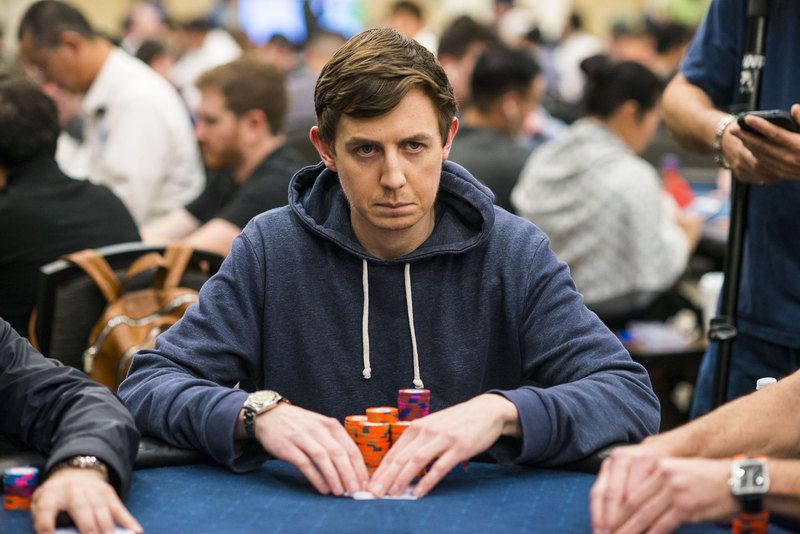
Over the last two months of 2019, Brock Wilson has accomplished what many poker players dream to accomplish over an entire year, or perhaps even an entire career.
Wilson went on a heater of epic proportions. He cashed 10 times, made five final tables, and chopped two $25,000 buy-in high roller tournaments heads-up. In just two months, the New York-native cashed for more than $1 million.
November started innocently enough with a ninth-place finish in a $600 no-limit hold’em at the World Series of Poker Circuit at Choctaw Casino in Oklahoma for $2,517, but the month ended on a high note. He chopped the $25,000 partypoker Millions Bahamas super high roller with Adrian Mateos for $619,536 and then cashed in the stop’s $10,000 main event for another $30,000 just a few days later.
December picked up right where November ended, with another chop in a $25,000 tournament. He chopped the high roller at the Rock N’ Roll Poker Open at Seminole Hard Rock in South Florida with Bryn Kenney for another $301,215. Less than a week later, he won a $10,000 high roller in Los Angeles for $131,665 and final tabled the WSOP Circuit Bicycle Casino main event, finishing fifth for $37,115.
“As poker players, we’re all very competitive, so it takes a lot of the pressure off,” said Wilson about his string of scores to end the year. “Honestly, I put a lot of pressure on myself too because I’ve spent my entire year and a half [as a pro], every single day. Playing and studying, playing and studying… So it just feels relieving that a lot of the time and effort I put in was worth it.”
At just 25 years old, Wilson is starting to break through from the mid-stakes tournaments he has been grinding over the last few years and into some of the game’s biggest buy-ins. The six-figure scores help alleviate some of the fears that Wilson’s family may have had when he quit his job to play poker for a living.
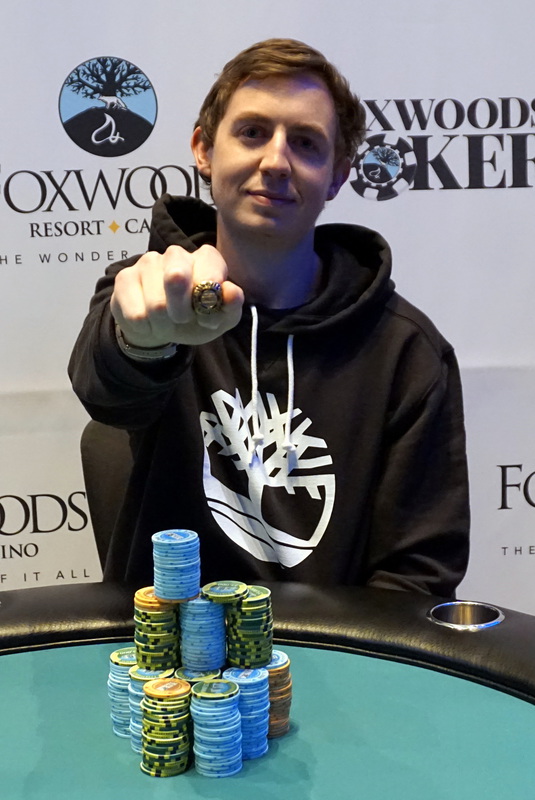 “From a family perspective, my mom isn’t a huge fan of poker,” said Wilson. “So seeing these really big numbers, even though I explained to her I don’t get all the money, you know, it’s just… it’s just really cool.”
“From a family perspective, my mom isn’t a huge fan of poker,” said Wilson. “So seeing these really big numbers, even though I explained to her I don’t get all the money, you know, it’s just… it’s just really cool.”
Before his seven-figure upswing to end 2019, Wilson had already experienced a fair amount of success. At the start of November, the Fordham University graduate amassed about $700,000 in career tournament earnings coming mostly in mid-stakes tournaments.
But there’s a big difference between a $1,700 WSOP Circuit main event and a $25,000 buy-in sitting across from some of the game’s most feared players. Aside from a cash in the 2019 PokerStars Players Championship, which doesn’t have the same caliber of player as in any other $25,000 buy-in, he had never cashed in a tournament with a buy-in that large.
The first time he played a buy-in that big was in Florida in 2018. His first table featured Stephen Chidwick and Jake Schindler. He didn’t cash the event, but after a few hands went his way, he gained some confidence. He realized that, contrary to popular belief, these guys can’t see your cards.
“I ran a big bluff and it worked,” said Wilson about his first high roller event. “And I was like ‘Wow, okay. So these guys are kind of just human too.’ They have sick results and everything, but you know, it’s cool.”
Ultimately, the main takeaway from losing $25,000 in one tournament was that he wasn’t severely outmatched.
“It didn’t quite feel like I was doing super well, but I kind of felt like ‘Okay. I can do this.’ I ran a big bluff. I made a thin value bet. It wasn’t as intimidating as when I had to go and take $25,000 and register with it. Once I sat down, you’re just kind of playing.”
Considering his closest friends in poker, it’s not a surprise that Wilson is one of poker’s next breakout candidates.
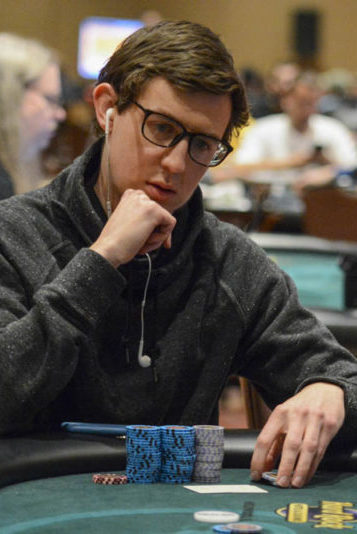 Wilson is part of a pack of up-and-coming young poker pros who are seemingly poised to become the game’s next big stars. He is close friends with Ali Imsirovic, who won the Poker Masters purple jacket in 2018 at just 23 years old, Stephen Song, who won a World Series of Poker bracelet this past summer, Adam Hendrix, who has seven figures in tournament earnings, as well as a couple other established young pros.
Wilson is part of a pack of up-and-coming young poker pros who are seemingly poised to become the game’s next big stars. He is close friends with Ali Imsirovic, who won the Poker Masters purple jacket in 2018 at just 23 years old, Stephen Song, who won a World Series of Poker bracelet this past summer, Adam Hendrix, who has seven figures in tournament earnings, as well as a couple other established young pros.
Growing up in the New York City suburbs, Wilson began making the four-hour trip north to Turning Stone Casino once he turned 18. While the rest of the casinos in the northeast force patrons to be 21 or older to gamble, Turning Stone is the one casino in New York that allows those 18 and older gamble.
It was during one of these trips that he made those contacts and built a network that would allow him to grow as a player.
“I met a kid, a friend, at Turning Stone who was about my age,” said Wilson. “We were only 18 years old and he was like ‘Hey, so you’re all into this game theory stuff. You should talk to my other friend, Ali. He really likes it.’ He goes ‘I think it’s stupid, but he likes it, so you should talk to him.’ I was like ‘Give me his number.’ I just reached out to him and I started talking to him just online because he lived way across the country.”
The two began talking strategy in 2015 and met at the 2016 WSOP. Through Imsirovic, Wilson met Song and the rest of his current poker buddies. And with a network in place, and a bunch of sharp minds to bounce ideas off of, the group as a whole began to crush the competition.
“I started talking to the other guys as well and all in all, I thought they looked at the game similarly,” said Wilson. “We could learn from one another. Steven [Song] is really good at exploitative stuff, whereas I’ll spend more time looking at theory. We each bring something to the table. Ali is just better than all of us. The other friends, we all have something that we’re better at, so we collaborate and it’s mutually beneficial for everyone.”
Merging all the different styles is what it takes to succeed at the highest stakes available. Even among the best in the high rollers, there are plenty of differences in style. While most of the field is working with solvers and basing most of their decisions on what is game theory optimal [GTO], there is still success to be had just from an immense amount of natural talent.
“A guy like Bryn Kenney doesn’t really use solvers,” said Wilson. “I’ve seen him play a good amount where he’ll just shove on guys and I’m like ‘Man, this is a pretty sick spot.’ Some of his plays, I think work near 100 percent. Because he just has a really good feel for what the guy has and what they’ll do with it.”
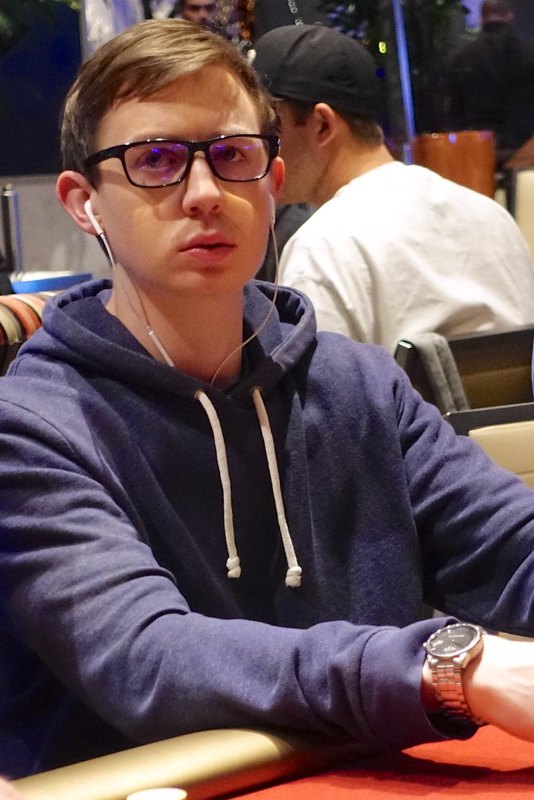 Wilson doesn’t consider himself to be someone with a ton of natural talent. A self-described ‘overstudier’ in school, he takes the same approach to poker.
Wilson doesn’t consider himself to be someone with a ton of natural talent. A self-described ‘overstudier’ in school, he takes the same approach to poker.
“I’m not fully sure what you’re up to,” he said. “So I’m going to just fall back on a fundamentally strong strategy… Say I’m risking one to win one. I know this needs to work about 50 percent of the time, but I know with my removal, it might work 60 percent of the time. And then I’ll make money doing that and I usually fall back on that.”
‘Naturally talented’ is a somewhat vague term, but Wilson kind of views it as a way to describe players who are able to make quick and accurate range assumptions without digging too much into the numbers.
“They’ll be able to sit at a table and have a really good feel for ‘Oh, you should bet this because he’s only going to call this much’ or ‘Oh if you shove here, he’s never calling.’ Whereas I’m sitting there, I don’t really know if I shove what he’s going to do. I have an idea combinatorically what he can have. I just don’t have a really good natural feel,” said Wilson.
After graduating high school in 2012, Wilson went on to study finance at Fordham in the Bronx. He continued playing poker throughout his college years and earned his first career tournament cash in 2013 at Turning Stone.
He found a bunch of success playing online at America’s Cardroom and as his college years were winding down, he found himself torn between pleasing his family and heading into the banking sector or following his passion and pursuing poker as a career.
Ultimately, he took a job in Manhattan with Bank of America. It didn’t last long. While Wilson was playing mid-stakes tournaments as a weekend warrior, his friends went pro and were traveling the world.
In 2018, Song made a World Poker Tour final table at Borgata in Atlantic City and Wilson had 10 percent of him. He took off from work and headed down to Atlantic City to sweat the action. Song busted sixth for $138,254, but after the tournament was over, his friends were headed to Montreal for another tournament, while Wilson was headed back to Manhattan.
“The final table was on a Thursday, so that Friday, as I’m about to take a bus back to Manhattan to go to work, they’re all gearing up to go to Montreal for the partypoker $10K. I was just like ‘God, this is so tough. This is really difficult,” he said about struggling with his decision on whether or not to quit his job and play professionally.
Wilson had some close calls playing tournaments at regional casinos but wanted to make a big score before he took the leap. In the end, seeing his friends have both so much fun and success was just too much for him not to take a chance himself.
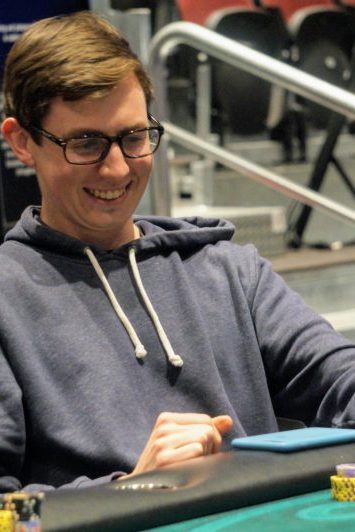 “I made back-to-back-to-back final tables in two Foxwoods tournaments and a Parx tournament,” said Wilson. “And I got tenth, ninth and eighth. I lost with pocket kings all in preflop each of the three times. I thought I needed to win something before I do this. It didn’t happen, but I said ‘Fuck it, I’m leaving anyway.’”
“I made back-to-back-to-back final tables in two Foxwoods tournaments and a Parx tournament,” said Wilson. “And I got tenth, ninth and eighth. I lost with pocket kings all in preflop each of the three times. I thought I needed to win something before I do this. It didn’t happen, but I said ‘Fuck it, I’m leaving anyway.’”
Just before the 2018 WSOP, Wilson quit his job and headed to Las Vegas to play a full slate of events. Had one hand gone differently at the WSOP two years prior, Wilson may have never taken the job, to begin with.
“In 2016, right before I started my job, I had made a deal with my mom that if I final tabled a WSOP event, I wouldn’t have to go work at a bank,” said Wilson. “I was second in chips in a WSOP $1,500 event and David Williams was third in chips and we each go in 80 big blinds each under the gun versus under the gun +1 where I had pocket kings and he had J-9 offsuit. He won for just under a final table average stack with 50 left. I joke with my friends that that hand set my life back two years. I would’ve just gone pro then and not worked for two years.”
That’s all in the past and he is well on his way to more success in the future. And if his future goes as planned, the poker world will be seeing much more of Brock Wilson.
“I really love poker. I’m going to be playing for a really long time,” said Wilson. “I’m going to play a lot of WPT events and then selectively play bigger.”
Wilson plans on moving from New York to Vegas in 2020 so that he can save some money on income taxes and play bigger stakes. He sold some action to the two six-figure scores he had, but he didn’t go out and make any extravagant purchases. He kept that money to pad his bankroll and take bigger pieces of himself in the future and help him achieve his goal of playing higher.
How much bigger? Quite a bit.
“My goal is to be doing well enough to play the Super High Roller Bowl in May.”
Photo Credits: Joe Giron/WPT and Allen Rash/SHRPO.com
Features
The Inside Straight
Strategies & Analysis